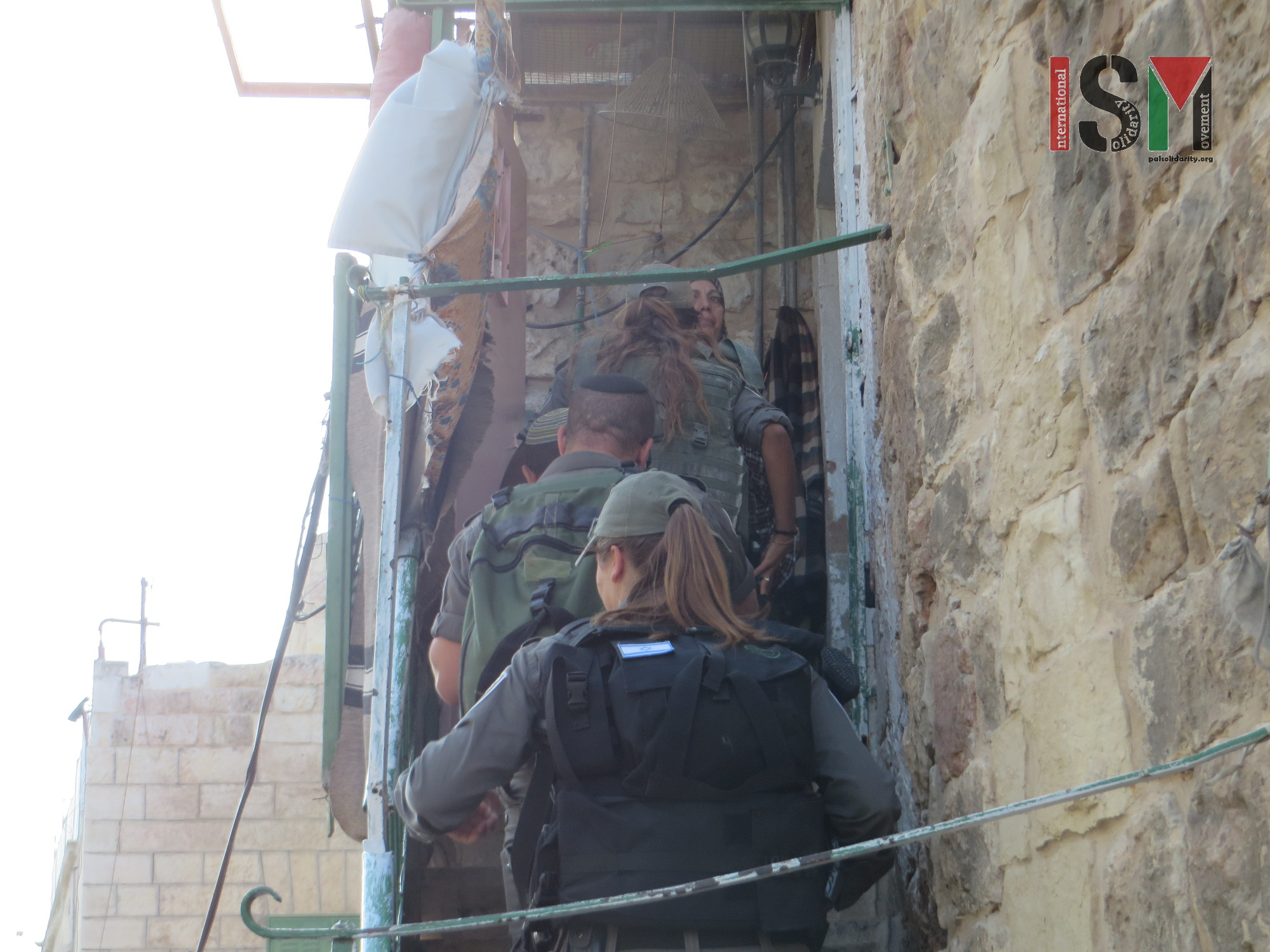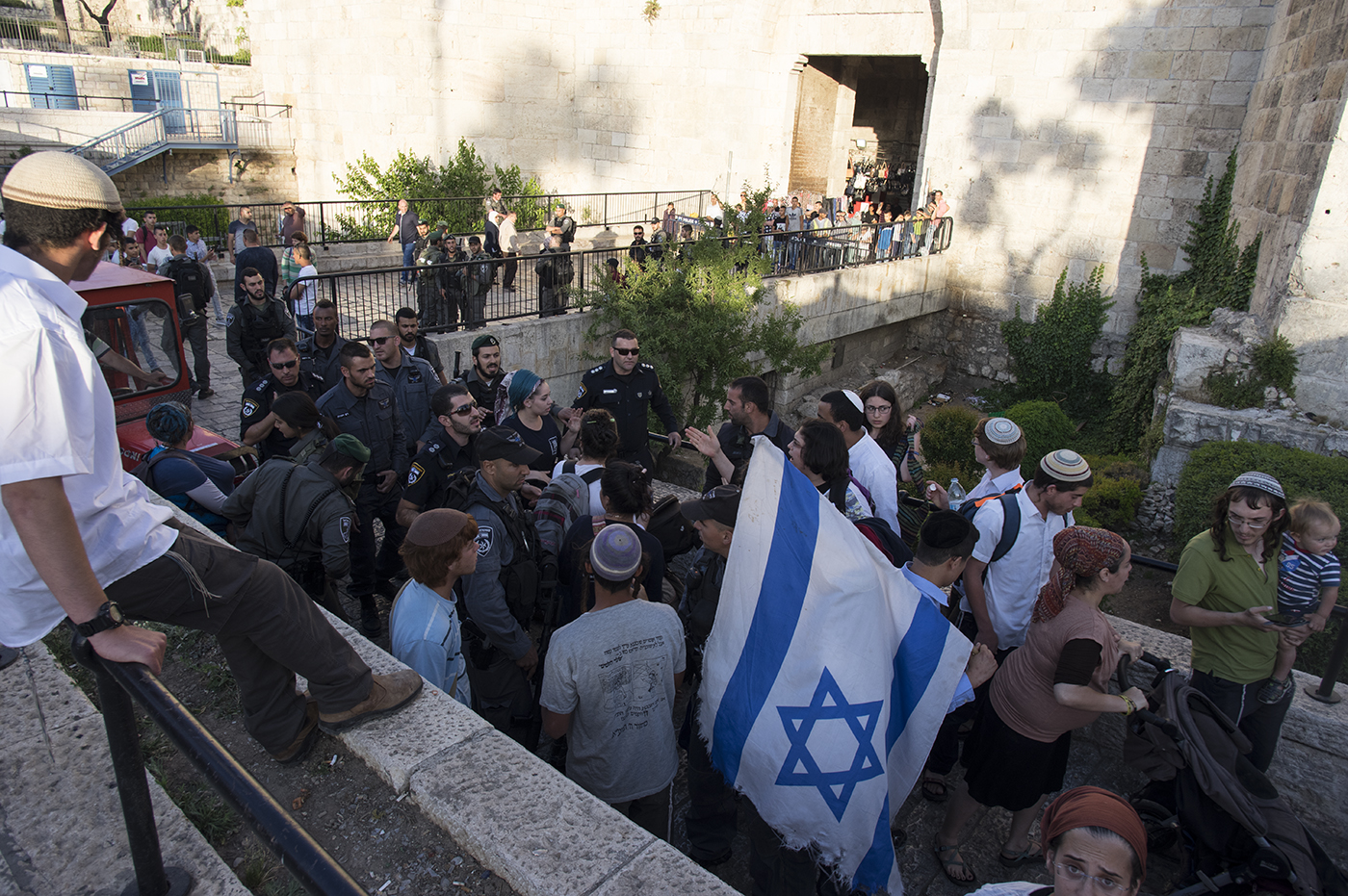Tag: Denial of Entry
-
10-year old girl arrested on settler children accusation
5th July 2016 | International Solidarity Movement, al-Khalil team | Hebron, occupied Palestine Israeli forces on Monday 4th July arrested a 10-year old Palestinian girl near the Ibrahimi mosque in occupied al-Khalil (Hebron), as a group of settler children arbitrarily accused her of throwing an enormous rock at them. A large group of settler children…
-
Hebron under selective and racist siege
2nd July 2016 | International Solidarity Movement, al-Khalil team | Hebron, occupied Palestine The southern West Bank city of occupied al-Khalil (Hebron) has been put under siege by Israeli forces – exclusively for Palestinians. Israeli forces declared a complete closure of the city as a ‘security measure’, closing all entries and exits into the city…
-
Curfew on Hebron neighborhoods imposed by Israeli forces
2nd July 2016 | International Solidarity Movement, al-Khalil team | Hebron, occupied Palestine Israeli forces, on 30th June 2016 enforced a complete curfew on several neighborhoods in occupied al-Khalil (Hebron). Deliberately, this curfew was designed to be imposed only on the Palestinian population, with the expressive goal of allowing settlers to move around these neighborhoods…



